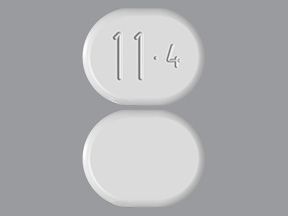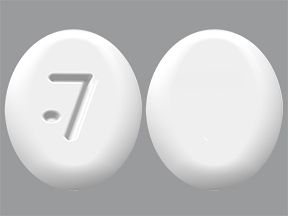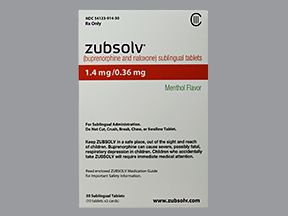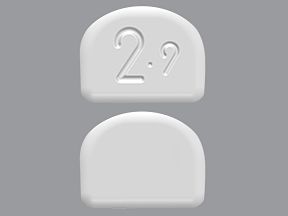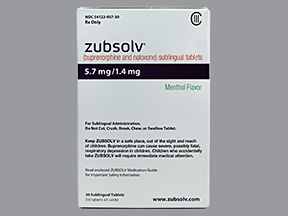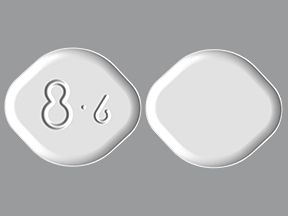If you’ve been thinking about treatment options for opioid dependence, your doctor may discuss Zubsolv with you.
It’s used as part of a treatment program to manage opioid dependence in adults. This condition is now called opioid use disorder by healthcare professionals. Zubsolv is prescribed along with behavioral therapy, such as counseling.
Opioids are a group of medications used to treat moderate to severe pain. But with long-term use, they may lead to dependence and addiction. (With dependence, your body needs a drug in order for you to feel normal. And with addiction, a drug is taken, even if it’s causing harmful outcomes.)
For more information about opioid dependence and how Zubsolv is used, see the “What is Zubsolv used for?” section below.
Zubsolv basics
Zubsolv comes as tablets that dissolve under your tongue. It’s a combination of two active ingredients:
- buprenorphine, which is a weak opioid
- naloxone, which is an opioid antagonist (a type of drug that blocks opioids)
Zubsolv is a brand-name drug. There isn’t a generic form of Zubsolv. But buprenorphine and naloxone are each available separately as a generic drug.
In this article we’ll discuss commonly asked questions about Zubsolv, its side effects, and other information you should know.
Zubsolv and Suboxone are both prescription drugs that contain the same active ingredients: buprenorphine and naloxone.
Both Zubsolv and Suboxone are used to manage opioid dependence. They’re both used together with behavioral therapies, such as counseling. (With dependence, your body needs a drug in order for you to feel normal.)
But these medications can’t be used interchangeably. This means if your doctor is switching you from one to the other, they’ll follow a certain dosing schedule to make sure your body handles the switch well.
Zubsolv and Suboxone are considered to be equally effective. But
For a detailed comparison of these drugs, see the “Suboxone vs. Zubsolv” section of this drug article. And talk with your doctor about the benefits of using either Zubsolv or Suboxone.
Find answers to some commonly asked questions about Zubsolv.
Will stopping Zubsolv make me have withdrawal symptoms?
Yes, it’s possible to have withdrawal symptoms after stopping Zubsolv. (Withdrawal refers to symptoms that occur when you stop taking a drug that your body is dependent on.) To help avoid withdrawal from Zubsolv, your doctor will discuss how you should slowly stop taking the medication. To do this, they’ll have you taper (slowly reduce) your dose over a certain length of time.
How long your doctor recommends tapering off of Zubsolv depends on:
- personal factors, such as how your overall treatment course with Zubsolv and behavioral therapy is going
- how you’re feeling with lowered doses of Zubsolv
If withdrawal symptoms occur, they can include vomiting, sweating more than usual, or feeling generally unwell. The timeline and severity of symptoms may depend on:
- how long you’ve been taking Zubsolv
- the dose of Zubsolv you’re taking
- other individual factors, including:
- other health conditions you may have, such as anxiety
- how your body responds to lowered doses of Zubsolv
It’s possible to have symptoms of withdrawal if your Zubsolv dosage is too low. But it’s important not to change your dosage of Zubsolv or stop taking Zubsolv unless your doctor prescribes this. Be sure to follow your doctor’s instructions for tapering off Zubsolv. And talk with your doctor if you feel you may be experiencing symptoms of withdrawal.
Should you take Zubsolv by snorting it?
No, you shouldn’t take Zubsolv by snorting it. This medication comes as tablets. It’s meant to be taken by dissolving the tablets under your tongue.
It’s important that you don’t misuse Zubsolv by taking it in a way that it’s not meant to be taken. You should also avoid altering Zubsolv tablets by crushing them. Doing these things may cause you to have withdrawal symptoms and other serious side effects from the drug.
Taking Zubsolv exactly as your doctor prescribes helps you stay on track with your treatment plan.
How long does Zubsolv stay in your system?
Zubsolv contains two active ingredients: buprenorphine and naloxone. These active ingredients each stay in your system for different lengths of time.
In general, half of a buprenorphine dose is cleared from your body 24 to 42 hours after it was taken. And half of a naloxone dose is cleared from your body 2 to 12 hours after it was taken. So Zubsolv may stay in your system for a few days, or even longer.
How long Zubsolv stays in your system also varies depending on:
- the dose of Zubsolv you’re taking
- other health conditions you may have, such as liver disease
- any other medications you’re taking
If you’re concerned about how long Zubsolv lasts in your body, talk with your doctor.
Is Zubsolv used to treat pain?
Zubsolv is only approved to treat opioid dependence. (With dependence, your body needs a drug in order for you to feel normal.) Although certain opioids may be prescribed to treat pain, Zubsolv is not approved for treating pain.
But Zubsolv contains the opioid buprenorphine. Sometimes, buprenorphine is prescribed off-label for pain. With off-label use, a medication is prescribed for a reason, or at a dose other than those for which it’s approved.
It’s important to note that Zubsolv isn’t a strong pain-reliever. And it may not be covered by your insurance plan if it’s used off-label.
If you’d like more information about using Zubsolv for pain, talk with your doctor.
Does Zubsolv cause weight gain?
You may gain some weight while you’re taking Zubsolv. But it’s unclear if Zubsolv causes weight gain.
The drug may lead to changes to your lifestyle, such as eating a balanced diet. And this could contribute to weight gain. Additionally, one
Keep in mind that a possible side effect of Zubsolv is peripheral edema (swelling in your hands and lower legs). And peripheral edema causes your body to hold more fluid than usual. This side effect may cause weight gain for a short period of time.
If you’re concerned about weight gain with Zubsolv use, talk with your doctor. They can suggest ways to help you maintain a weight that’s healthy for you while you’re taking Zubsolv. If you notice swelling while you’re taking Zubsolv, let your doctor know.
Your doctor will recommend the dosage of Zubsolv that’s right for you. Below are commonly used dosages, but always take the dosage your doctor prescribes.
Form and strengths
Zubsolv comes as tablets that dissolve when you place them under your tongue.
This medication contains two active drugs: buprenorphine and naloxone. It’s available in six strengths:
- buprenorphine 0.7 milligrams (mg) and naloxone 0.18 mg
- buprenorphine 1.4 mg and naloxone 0.36 mg
- buprenorphine 2.9 mg and naloxone 0.71 mg
- buprenorphine 5.7 mg and naloxone 1.4 mg
- buprenorphine 8.6 mg and naloxone 2.1 mg
- buprenorphine 11.4 mg and naloxone 2.9 mg
Recommended dosages
The dosage of Zubsolv your doctor prescribes for you will depend on:
- how severe your condition is
- which type of opioids (either short-acting or long-acting) you were taking
- any other medications you’re taking
- whether you’re switching to Zubsolv from another treatment medication
Zubsolv treatment phases
Treatment with Zubsolv involves two phases:
- induction (the beginning phase of treatment)
- maintenance (the continuation phase of treatment)
Induction phase
During the induction phase, your Zubsolv dosage is managed so that you don’t experience opioid withdrawal symptoms as your body adjusts to Zubsolv. Your doctor will monitor your treatment progress carefully during this phase.
The induction phase typically lasts for 3 days. But your doctor will determine how long your induction phase should last depending on your unique situation.
Sometimes, a medication other than Zubsolv is used for the induction phase. In this case, a drug that only contains buprenorphine is typically used. (Keep in mind that Zubsolv contains both buprenorphine and naloxone.) Using this type of drug instead of Zubsolv helps to reduce opioid withdrawal symptoms during the induction phase.
Maintenance phase
After you safely complete the induction phase, you’ll begin the maintenance phase of Zubsolv treatment.
During this phase, you’ll take the lowest Zubsolv dosage that prevents opioid withdrawal symptoms and helps you safely progress with treatment. How long maintenance treatment lasts depends on how you’re doing with treatment. Your doctor will discuss with you a recommended length of time for Zubsolv treatment.
Taking Zubsolv with other therapies
During treatment with Zubsolv, your doctor will recommend other therapies to help support your treatment progress. These other therapies may include:
- behavioral therapy, such as counseling or cognitive behavioral therapy
- support groups
- recovery apps
Questions about Zubsolv’s dosing
Below are some common questions about Zubsolv’s dosing.
- What if I miss a dose of Zubsolv? To avoid side effects, such as opioid withdrawal symptoms, it’s important to take Zubsolv exactly as it’s prescribed for you. If you miss a dose, take the missed dose as soon as you remember. But if it’s close to your next regular dose, just skip the missed dose. Don’t take two doses of Zubsolv at once. Doing so can increase your risk for side effects.
- Will I need to use Zubsolv long term? Maybe. How long you’ll need to take Zubsolv depends on how you’re doing with the treatment. Your doctor and counselor will monitor your progress and discuss your treatment goals with you on a regular basis. Your treatment will be individually tailored to help you have long-term success. Ask your doctor and therapist about the benefits and risks of long-term Zubsolv use.
- How long does Zubsolv take to work? Zubsolv starts to work to help curb opioid cravings and withdrawal symptoms soon after you take a dose. Your doctor will explain the phases of Zubsolv treatment so you’ll know what to expect during each phase.
- Is there a best time of day to take Zubsolv? There’s no specific time of day that’s best to take Zubsolv. But taking this drug around the same time each day helps to keep a steady level of the drug in your body. This helps Zubsolv work effectively.
Your doctor will explain how you should take Zubsolv. They’ll also explain how much to take and how often. Be sure to follow your doctor’s instructions.
Taking Zubsolv
Zubsolv comes as a sublingual tablet, which means you place it under your tongue. The tablet dissolves within 1 or 2 minutes.
If you’re taking more than one tablet for your dose, put them in different places under your tongue, all at the same time.
Swish some water around your teeth and gums and swallow it after you take each dose. And do not brush your teeth for at least an hour after taking Zubsolv. These things help make sure that you take your entire dose.
Questions about taking Zubsolv
Below, we answer some common questions about taking Zubsolv.
- Can Zubsolv be chewed, crushed, or split? No, don’t chew, crush, or split Zubsolv tablets. Doing these things may change how the medication works in your body. And it may cause you to have opioid withdrawal symptoms.
- Should I take Zubsolv with food? No. You shouldn’t drink or eat anything until after a Zubsolv tablet dissolves under your tongue. Avoiding food and beverages during this time will help ensure that you get your full dose of Zubsolv.
Questions for your doctorYou may have questions about Zubsolv and your treatment plan. It’s important to discuss all your concerns with your doctor.
Here are a few tips that might help guide your discussion:
- Before your appointment, write down questions like:
- How will Zubsolv affect my body, mood, or lifestyle?
- Bring someone with you to your appointment if doing so will help you feel more comfortable.
- If you don’t understand something related to your condition or treatment, ask your doctor to explain it to you.
Remember, your doctor and other healthcare professionals are available to help you. And they want you to get the best care possible. So don’t be afraid to ask questions or offer feedback on your treatment.
Like most drugs, Zubsolv may cause mild or serious side effects. The lists below describe some of the more common side effects that Zubsolv may cause. These lists don’t include all possible side effects.
Keep in mind that side effects of a drug can depend on:
- your age
- your dose of the drug
- other health conditions you have
- other medications you may be taking
Your doctor or pharmacist can tell you more about the potential side effects of Zubsolv. They can also suggest ways to help reduce side effects.
Mild side effects
Here’s a short list of some of the mild side effects that Zubsolv can cause. To learn about other mild side effects, talk with your doctor or pharmacist, or read Zubsolv’s prescribing information.
Mild side effects of Zubsolv that have been reported include:
- nausea
- vomiting
- constipation*
- peripheral edema (swelling in your hands and lower legs)
- insomnia (trouble falling or staying asleep)
- pain, such as belly pain
- opioid withdrawal symptoms
- excessive sweating
- headache*
Mild side effects of many drugs may go away within a few days or a couple of weeks. But if they become bothersome, talk with your doctor or pharmacist.
* For more information on this side effect, see the “Side effect focus” section below.
Serious side effects
Serious side effects from Zubsolv can occur, but they aren’t common. If you have serious side effects from Zubsolv, call your doctor right away. But if you think you’re having a medical emergency, you should call 911 or your local emergency number.
Serious side effects of Zubsolv that have been reported include:
- respiratory depression (shallow or slowed breathing), which may cause tiredness, blue lips or mouth, and coma
- central nervous system (CNS) depression (slowed brain activity), which may cause slow heart rate, drowsiness, confusion, lethargy, slurred speech, and lack of coordination
- liver damage, including hepatitis (inflammation in your liver)
- orthostatic hypotension (low blood pressure that develops when you stand up quickly)
- problems with your adrenal glands
- increased pressure in your brain
- increased pressure in your biliary tract (area of your body that includes your gallbladder and liver)
- dental problems, such as cavities, infection, tooth decay, or tooth loss in severe cases
- allergic reaction*
* For more information on this side effect, see the “Side effect focus” section below.
Side effect focus
Learn more about some of the side effects Zubsolv may cause.
Constipation
Zubsolv can cause constipation. In fact, during studies, this was a common side effect of the drug.
Symptoms of constipation may include:
- fewer bowel movements in a week than usual
- feeling fullness in your belly, even after bowel movements
- trouble passing stool
- pain during bowel movements
What might help
If you have constipation with Zubsolv, increasing the amount of fiber in your diet and drinking plenty of water can help.
In some cases, your doctor may also suggest over-the-counter or prescription medications to treat the constipation. Be sure to always check with your doctor before taking any medications for constipation.
Tiredness
Medications that contain an opioid can cause tiredness or lethargy (a feeling of sluggishness). And Zubsolv contains the opioid buprenorphine.
Feeling tired or having lethargy can be symptoms of CNS depression, which is a possible serious side effect of Zubsolv. (With CNS depression, your brain activity is slowed.) The risk of CNS depression varies depending on your dose of Zubsolv, how long you’ve taken the drug, and the severity of your opioid dependence.
What might help
Until you’re familiar with how Zubsolv affects you, be careful with any tasks that require you to be alert, such as driving.
If you feel extremely tired, have trouble breathing, or experience any other life threatening symptoms with Zubsolv, call 911 or your local emergency number. Or, have someone take you to the nearest emergency room right away.
Headache
Taking Zubsolv may cause headaches. This was a common reaction in people who took the drug during studies.
What might help
If you have headaches that are bothersome during Zubsolv treatment, talk with your doctor. They can recommend safe options to treat your headache. But don’t take any medications for headaches with Zubsolv without first talking with your doctor.
Allergic reactionSome people may have an allergic reaction to Zubsolv.
Symptoms of a mild allergic reaction can include:
- skin rash
- itchiness
- flushing (temporary warmth, redness, or deepening of skin color)
A more severe allergic reaction is rare but possible. Symptoms of a severe allergic reaction can include swelling under your skin, typically in your eyelids, lips, hands, or feet. They can also include swelling of your tongue, mouth, or throat, which can cause trouble breathing.
Call your doctor right away if you have an allergic reaction to Zubsolv. But if you think you’re having a medical emergency, call 911 or your local emergency number.
Before starting Zubsolv, let your doctor know about all of your health conditions. It’s especially important to tell them if you have liver problems or are pregnant or breastfeeding. Also let them know about all of your medications, including any over-the-counter products you take.
Here’s information about some interactions and warnings you should know about for Zubsolv.
Interactions
Taking medications, vaccines, foods, and other things with a certain drug can affect how the drug works. These effects are called interactions.
Before taking Zubsolv, be sure to tell your doctor about all medications you take (including prescription and over-the-counter types). Also describe any vitamins, herbs, or supplements you use. Your doctor or pharmacist can tell you about any interactions these items may cause with Zubsolv.
Interactions with drugs or supplements
Zubsolv can interact with several types of drugs, including those listed below.
- Opioids. Examples of opioids include hydrocodone, morphine, and oxycodone. Zubsolv contains the opioid drug buprenorphine. Taking other opioids with Zubsolv can increase your risk for side effects and opioid overdose.
- Benzodiazepines and other central nervous system (CNS) depressant drugs. Zubsolv is a type of drug called a CNS depressant. Examples of benzodiazepines and other CNS depressants include alprazolam, diazepam, zolpidem, certain muscle relaxers, and medications for insomnia. Taking these medications together with Zubsolv can increase your risk for drowsiness, sedation, CNS depression, and Zubsolv overdose.
- Macrolide antibiotics and antifungals. An example of these antibiotics is clarithromycin. Examples of antifungals include ketoconazole and fluconazole. Taking any of these medications with Zubsolv can increase buprenorphine levels in your body. (Buprenorphine is one of the active drugs in Zubsolv.) And this increases your risk for side effects from Zubsolv. If you need to take any of these medications with Zubsolv, your doctor will lower your Zubsolv dosage until you finish treatment with the other medication.
- Certain types of antidepressants. Examples of these antidepressant drugs include venlafaxine and fluoxetine. These types of drugs increase levels of a brain chemical called serotonin. And this may lead to a dangerous condition called serotonin syndrome, which causes high blood pressure, tremors, confusion, fast heartbeat, and seizures. If you need to take certain types of antidepressants with Zubsolv, your doctor will monitor you closely for serotonin syndrome.
- Certain types of seizure medications. Certain seizure medications, including carbamazepine and phenytoin, can lower the amount of Zubsolv in your body. This can make Zubsolv less effective, and can also increase your risk of opioid withdrawal symptoms. If you need to take certain types of seizure medications, your doctor may adjust your Zubsolv dosage. And they’ll monitor you closely for opioid withdrawal symptoms.
- Certain types of diuretic medications. Diuretics, also called water pills, include furosemide, spironolactone, and hydrochlorothiazide. Taking diuretics with Zubsolv can make diuretics less effective and increase your risk of high blood pressure and swelling. If you need to take a diuretic with Zubsolv, your doctor may increase your diuretic dosage. They’ll also monitor you closely for symptoms such as swelling and high blood pressure while you’re taking Zubsolv.
This list does not contain all types of drugs that may interact with Zubsolv. Your doctor or pharmacist can tell you more about these interactions and any others that may occur with use of Zubsolv.
Warnings
Zubsolv may not be right for you if you have certain medical conditions or other factors that affect your health. Talk with your doctor about your health history before you take Zubsolv. Factors to consider include those in the list below.
- Liver disease or liver damage. If you have serious problems with your liver, Zubsolv may not be right for you. With certain liver conditions, you may have serious side effects from Zubsolv, including opioid withdrawal symptoms. And buprenorphine (one of the active drugs in Zubsolv) can cause liver problems, such as hepatitis (inflammation in your liver). If you have liver problems or you’ve had them in the past, let your doctor know. They’ll recommend if Zubsolv is safe for you.
- Allergic reaction. If you’ve had an allergic reaction to Zubsolv or any of its ingredients, you shouldn’t take Zubsolv. Ask your doctor what other medications are better options for you.
- Breathing problems. If you have serious lung conditions, such as chronic obstructive pulmonary disease, Zubsolv may increase your risk for breathing trouble. This is because the drug can cause slowed or shallow breathing. Let your doctor know if you have lung problems before you start using Zubsolv. Doing so can help you to avoid serious problems while you’re taking Zubsolv.
- Head injury or brain tissue damage. One of the active drugs in Zubsolv, called buprenorphine, may increase pressure inside your head, which could lead to permanent brain damage. If you’ve had any head injuries or brain damage, talk with your doctor to see if Zubsolv is a safe option for you.
- Bile duct damage or disease. One of the active drugs in Zubsolv, called buprenorphine, may increase pressure inside your bile duct tract. (Your bile duct tract is an area of your body that includes your gallbladder and liver.) If you have a history of bile duct damage or other problems, talk with your doctor to see if Zubsolv is a safe option for you.
- Intestinal damage or disease. Constipation is a common side effect of Zubsolv. If you already have problems with your intestines, you may have a higher risk for constipation with Zubsolv. Talk with your doctor about whether Zubsolv is safe for you to take if you have intestinal damage or other problems.
- Heart problems. If you have or are at a high risk of heart problems, Zubsolv may increase your risk of long QT syndrome (abnormal electrical activity in your heart). If you already have a heart condition or a condition that increases your risk of heart problems, your doctor will likely monitor you for any heart problems while you’re taking Zubsolv. These conditions include hypokalemia, bradycardia, atrial fibrillation, and heart failure. Talk with your doctor about your medical history before you start taking Zubsolv.
Use with alcohol
You shouldn’t drink alcohol while you’re taking Zubsolv. Drinking alcohol while you’re taking Zubsolv can increase your risk for serious or life threatening side effects, including CNS depression. Symptoms of CNS depression can include:
- slowed breathing and slow heart rate
- slowed reflexes and loss of coordination
- low blood pressure
- loss of consciousness
- coma
Also, in some cases, drinking alcohol while using Zubsolv can lead to death. This is because both Zubsolv and alcohol can cause central nervous system (CNS) depression. (With CNS depression, your brain activity is slowed.)
You may wish to ask your doctor for more information about the risks of drinking alcohol while using Zubsolv.
Pregnancy and breastfeeding
Talk with your doctor about whether you should take Zubsolv while pregnant or breastfeeding.
Zubsolv use while pregnant
Using Zubsolv during pregnancy may cause the fetus to develop neonatal opioid withdrawal syndrome (NOWS). With NOWS, the baby is dependent on opioids, which means their body needs opioids in order for them to feel normal.
If you’ve used Zubsolv during pregnancy, your baby will be monitored after birth. Treatment for NOWS may be given in the hospital.
Symptoms of NOWS can include:
- diarrhea
- irritability
- excessive crying
- trouble sleeping
- lack of weight gain
Talk with your doctor about the risks and benefits of taking Zubsolv if you’re pregnant. While using Zubsolv does increase the risk of NOWS, having untreated opioid dependence can also be harmful to a pregnancy.
Zubsolv use while breastfeeding
Zubsolv does pass into breast milk. So be sure to ask your doctor if it’s safe to breastfeed while you’re taking Zubsolv. If you decide to breastfeed while taking Zubsolv, your child will need to be monitored carefully for symptoms of Zubsolv overdose. These symptoms include:
- trouble breathing
- blue lips or mouth
- excessive sleepiness
If your child has any of these symptoms or other unusual symptoms, call 911 or your local emergency number right away.
Recommendations from the American College of Obstetricians and Gynecologists state that most females* having treatment for opioid use disorder with a medication such as Zubsolv should breastfeed their children if they wish to do so. But there are some exceptions to this guidance, so be sure to talk with your doctor about it.
Talk with your doctor about the safety of breastfeeding while you’re taking Zubsolv. They can tell you if you should consider other feeding options.
* In this article, we use the term “female” to refer to someone’s sex assigned at birth. For information about the difference between sex and gender, see this article.
Costs of prescription drugs can vary depending on many factors. These factors include what your insurance plan covers and which pharmacy you use.
If you have questions about how to pay for your prescription, talk with your doctor or pharmacist. You can also visit the Zubsolv manufacturer’s website to see if it offers any support options.
If you’ve been considering treatment for opioid dependence, your doctor may discuss Zubsolv treatment with you.
Zubsolv is used as part of a treatment program to manage opioid dependence in adults. It’s prescribed along with behavioral therapy, including counseling and support programs. This complete treatment program helps to increase long-term success with treatment.
Opioids are a group of medications used to manage moderate to severe pain. But with long-term use, they may cause drug dependence and addiction. (With dependence, your body needs a drug in order for you to feel normal. And with addiction, a drug is taken, even if it’s causing harmful outcomes.)
Zubsolv is a partial agonist-antagonist drug. This means it provides some similar effects as opioids and it also blocks the effects of opioids.
Zubsolv contains these two drugs, which help manage opioid dependence symptoms:
- Buprenorphine, which is a weak opioid. It works to reduce your opioid cravings and lower your risk for opioid withdrawal symptoms after you stop taking opioids.
- Naloxone, which is an opioid antagonist. It works to block the effects of opioids in your body. This helps prevent misuse of Zubsolv, which means you take it in a way other than how it’s prescribed for you. For example, if you crush Zubsolv tablets rather than taking them whole as directed, naloxone is released. Naloxone blocks the effects of buprenorphine, leading to opioid withdrawal symptoms.
You’ll start Zubsolv treatment with an induction phase, which typically lasts for 3 days. This phase lets your body become used to Zubsolv. After this phase, your doctor will adjust your Zubsolv dosing for the remainder of treatment, which is called the maintenance phase. For more information, see the “How is Zubsolv taken?” section above.
Do not take more Zubsolv than your doctor prescribes. Using more than this can lead to serious side effects.
Symptoms of overdose
Symptoms caused by Zubsolv overdose can include:
- low blood pressure
- pinpoint pupils (abnormally small pupils, which are the center areas of your eye that let light inside)
- respiratory depression (shallow or slowed breathing)
- sedation (sleepiness, loss of coordination, and trouble thinking clearly)
- in some cases, death
What to do in case you take too much Zubsolv
Call your doctor if you think you’ve taken too much Zubsolv. You can also call 800-222-1222 to reach the American Association of Poison Control Centers or use its online resource. But if you have severe symptoms, immediately call 911 (or your local emergency number) or go to the nearest emergency room.
Note: If your doctor recommends that you take Zubsolv for opioid dependence, you should also talk with your doctor or pharmacist about using naloxone (Narcan) for treating opioid overdose. A friend or family member can be trained to give doses of naloxone in case you have an overdose while you’re taking Zubsolv. (For more information about opioid dependence, see the “What is Zubsolv used for?” section above.)
There is a risk of misuse with Zubsolv, including addiction. Misuse happens when you take the drug in a way other than how it’s prescribed for you. It also refers to taking a drug that’s prescribed for someone else.
Zubsolv is used to treat opioid dependence in adults. (With dependence, your body needs a drug in order for you to feel normal.) Zubsolv acts like a weak opioid in your body. It helps manage opioid cravings and opioid withdrawal symptoms. But it doesn’t give you a feeling of euphoria or of being “high.”
But if you change your dose or how often you take Zubsolv on your own, it’s considered misuse of the drug. And misuse of Zubsolv may increase your risk for serious side effects, including Zubsolv overdose.
Misuse also happens when you take the drug in a way other than how it’s prescribed for you.
To help protect against misuse, Zubsolv contains naloxone, which is an opioid antagonist. It works to block the effects of opioids in your body.
So if you crush Zubsolv tablets rather than taking them whole as directed, naloxone is released. Naloxone blocks the effects of buprenorphine, leading to opioid withdrawal symptoms.
Be sure to take Zubsolv exactly as your doctor prescribes it for you. Doing so helps your treatment to be successful. Your doctor will discuss with you the serious risks of misusing this medication.
Before starting treatment with Zubsolv, talk with your doctor to learn more about opioid dependence and how Zubsolv can help treat it. (With dependence, your body needs a drug in order for you to feel normal.)
Ask your doctor about what to expect with Zubsolv, including:
- what to do if you have opioid withdrawal symptoms
- which side effects of Zubsolv you should watch for
- any other concerns you may have about Zubsolv
Your doctor may discuss other treatment options available for your condition. And they can tell you about support groups and behavioral therapies, such as counseling and cognitive behavioral therapy.
To get you started, here are a few questions you might consider asking your doctor:
- How soon will I know if Zubsolv is working?
- Will I experience opioid withdrawal when I first start using Zubsolv?
- What if I have a serious allergic reaction to Zubsolv?
- What over-the-counter supplements are safe to take with Zubsolv?
To learn more about opioid addiction, stigma, and withdrawal symptoms, read Healthline’s overview article on this topic.
Q:
Can I take Lomotil for diarrhea while I’m taking Zubsolv?
AnonymousA:
Taking Lomotil together with Zubsolv may not be safe for some people.
Both Lomotil and Zubsolv can cause central nervous system (CNS) depression as a side effect. (With CNS depression, your brain activity is slowed.) So taking these medications together can increase your risk for this side effect, which can be serious.
Symptoms of CNS depression can include:
- slow heart rate
- drowsiness
- confusion
- lethargy (feeling sluggish)
- slurred speech
- lack of coordination
If you’re having diarrhea with Zubsolv, call your doctor. They can recommend a product that’s safe for you to take with Zubsolv. And they can recommend whether it’s safe for you to take Lomotil with Zubsolv.
While taking Zubsolv, don’t take other medications, including over-the-counter medications, without first talking with your doctor. They can recommend a treatment option that’s safe for you to take with Zubsolv. Keep in mind that other medications you take with Zubsolv may also affect your risk for side effects.
The Healthline Pharmacist TeamAnswers represent the opinions of our medical experts. All content is strictly informational and should not be considered medical advice.Disclaimer: Healthline has made every effort to make certain that all information is factually correct, comprehensive, and up to date. However, this article should not be used as a substitute for the knowledge and expertise of a licensed healthcare professional. You should always consult your doctor or another healthcare professional before taking any medication. The drug information contained herein is subject to change and is not intended to cover all possible uses, directions, precautions, warnings, drug interactions, allergic reactions, or adverse effects. The absence of warnings or other information for a given drug does not indicate that the drug or drug combination is safe, effective, or appropriate for all patients or all specific uses.

